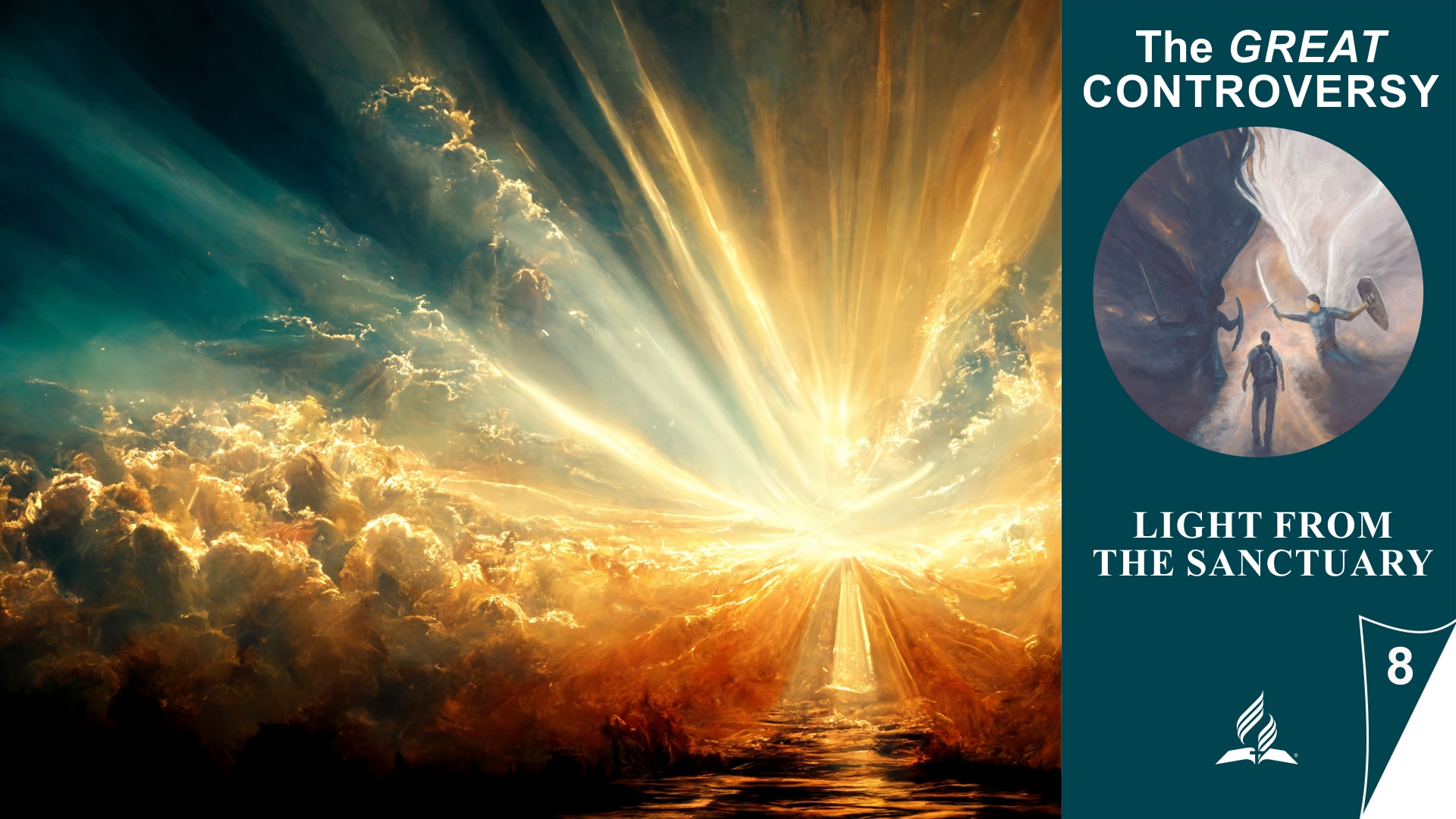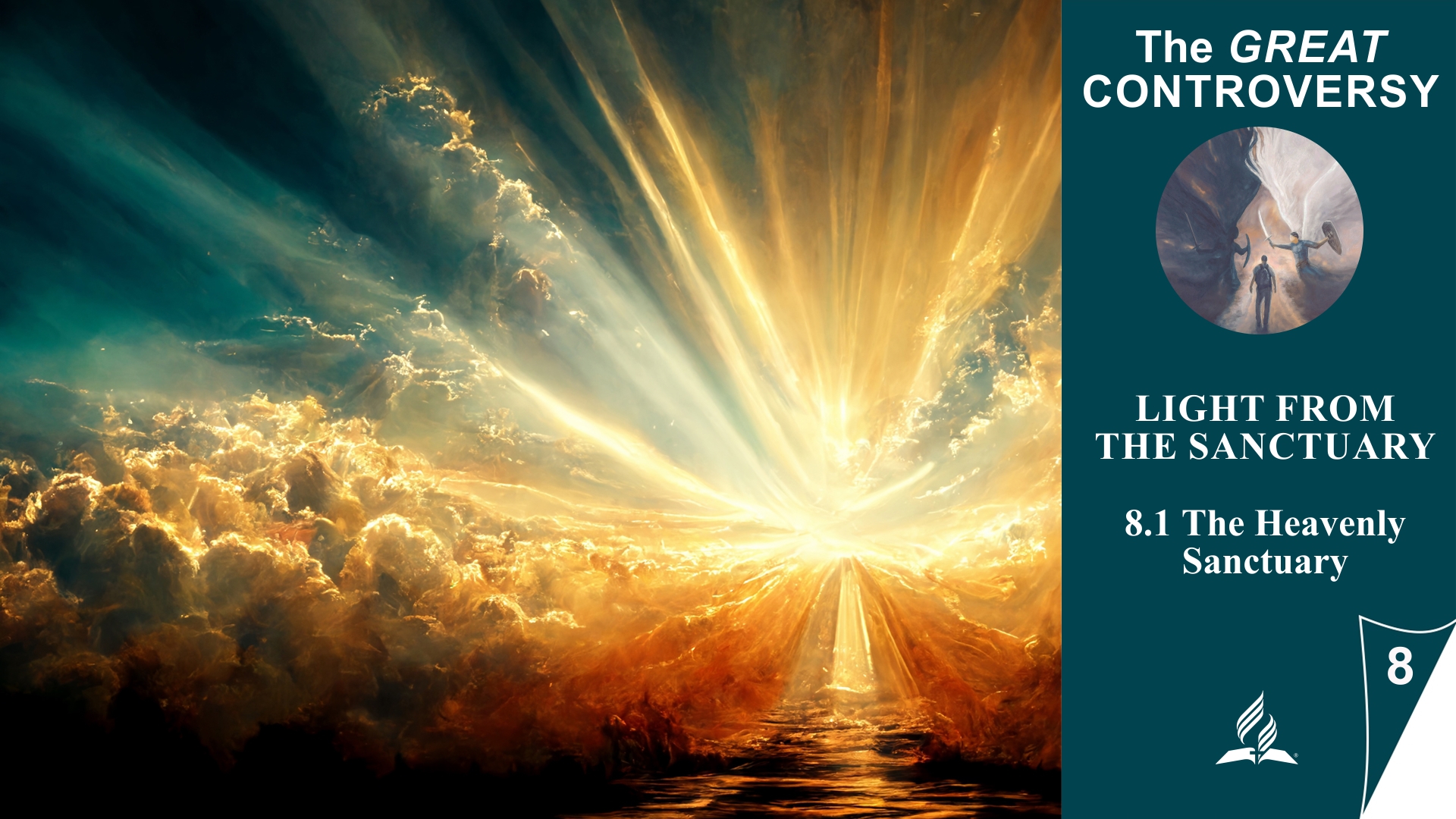

Lesson 8.Light from the Sanctuary
Light and Redemption from the Sanctuary: Jesus’ Intercession and Perfection
In Lesson 8, we delve deeper into the understanding of the sanctuary, a central theme in biblical theology. The sanctuary served as a place of God’s presence and as the center for divine service and worship. It reveals important aspects of the divine character and His plan of redemption for humanity.
In this lesson, we will particularly focus on the significance of Jesus’ ministry in the heavenly sanctuary. We will examine how His sacrifice on the cross and His intercession in the heavenly sanctuary are connected and why this is crucial for our faith. Furthermore, we will consider the role of judgment in the plan of redemption and how our daily lives and faith are connected to this sublime concept.
Let us delve into the rich teaching of the sanctuary and discover how it helps us experience and reflect God’s love, mercy, and justice in our lives.

8.1 The Heavenly Sanctuary
Assurance of Redemption through Christ
Read Exodus 25:8–9, 40 and Hebrews 8:1–6. What two sanctuaries are described in these verses?
The distinction between the earthly and heavenly sanctuaries is crucial as it forms the foundation of Christian faith and Adventist doctrine concerning end-time events. The Holy Scriptures describe the earthly sanctuary, built by Moses according to God’s instructions, as a pattern or foreshadowing of the heavenly sanctuary. This earthly sanctuary and its ceremonies prophetically pointed to redemption through Jesus Christ, who offered the ultimate sacrifice for the sins of humanity.
The fulfillment of the prophecy of Daniel 8:14 in 1844 marks a crucial turning point in prophetic chronology and points to the heavenly sanctuary as the place of end-time cleansing and heavenly judgment. Jesus Christ is portrayed as our High Priest who ministers in the heavenly sanctuary on our behalf, securing our redemption and protection from the power of sin.
The assurance of redemption through Christ and liberation from the bondage of sin are cornerstones of the Christian faith. Through His sacrifice on the cross and His ongoing intercession in the heavenly sanctuary, Jesus offers us the opportunity to be free from guilt and condemnation and to live in communion with God. These truths encourage us to hold fast to faith and embrace the hope of the perfect work of redemption realized in Christ.
What does it mean for you to know that Jesus ministers for you in heaven, that is, that He intercedes for you there? Why do you need a mediator? Why is this truth good news?
The certainty that Jesus ministers for us in heaven is a source of hope and comfort. It means that we are not alone, that we have a mighty advocate who intercedes for us and represents our concerns before God. This is particularly significant because as humans, we often fail, make mistakes, and succumb to temptation. In such moments, we need someone to advocate for us, someone who knows our weaknesses and stands up for our salvation.
The need for a mediator stems from our imperfection and sinfulness. As sinners, we cannot stand directly before a holy God. Our sins separate us from Him. A mediator, like Jesus Christ, who was without sin, stands in our place to bridge this gap. Through His substitutionary sacrifice on the cross, He bore the penalty for our sins and enables us to be justified before God.
This truth is good news because it gives us hope. It means that our past does not determine our destiny. Through Jesus, we have the opportunity to be reconciled with God and lead a new life. We can confess our sins, repent, and through faith in Christ, receive forgiveness and healing. It is an encouragement to know that our relationship with God is not based on our own merits but on His grace and love expressed through Jesus Christ.
The truth about Jesus’ ministry in the heavenly sanctuary and His role as our mediator has direct implications for our daily lives and our faith.
Firstly, it gives us hope and comfort in difficult times. When faced with challenges, temptations, or feelings of guilt, we can remember that Jesus intercedes for us and represents our concerns before God. We do not have to struggle alone or feel alone but can rely on Jesus being with us and supporting us through His intercession.
Secondly, this truth reminds us that we can confess our sins and ask for forgiveness. Since Jesus intercedes for us, we have the opportunity to approach God with a clean heart and receive His forgiveness. We do not have to be burdened by guilt and condemnation but can experience the freedom and healing offered through forgiveness in Christ.
Thirdly, this truth strengthens our faith and our assurance of redemption. By understanding that Jesus ministers for us in the heavenly sanctuary, we recognize the depth of His love and dedication to us. This strengthens our faith in His ability to save us and keep us in His grace, giving us the assurance that we are loved and accepted, regardless of our circumstances or mistakes.
Overall, the knowledge of Jesus’ ministry in the heavenly sanctuary encourages us to strengthen our faith, confess our sins, and rely on His infinite grace and love as we journey through life.

The certainty that Jesus ministers for us in heaven gives us hope in our weaknesses and comfort in our trials.
Source: https://fulfilleddesire.net/lesson-8-light-from-the-sanctuary-8-1-the-heavenly-sanctuary/


 (
(